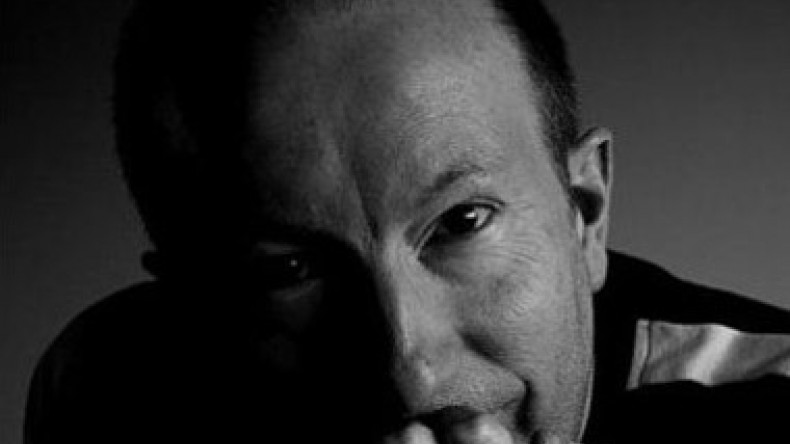
Russell Pollard: The recognition of NKR within current borders is the only humanitarian option
In the interview with Panorama.am British independent photographer and writer Russell Pollard, who has visited Armenia and Nagorno Karabakh 10 times, shares his insights about the situation on the ground and explains why the only humanitarian solution to the Nagorno-Karabakh conflict can be the recognition of the Nagorno Karabakh Republic (NKR) within its current borders.
Mr. Pollard, you have visited Armenia and Nagorno Karabakh many times and have been sharing your experience through your articles and photography in your blog www.artsakh.org.uk. How did you get interested in this region? What has captured your interest and kept bringing you back?
My first arrival to Armenia was very arbitrary; I came as a tourist in 2009 and from that initial visit many things captured my imagination.
One of these things was the Genocide Museum in Yerevan. In the UK when I was at school (probably it’s not different today) we were not taught about the Armenian genocide. I did some reading up on the subject prior to coming to Armenia, and when I visited the museum it proved to be an emotional experience. When I searched the grounds around the museum for the plaque from the UK government (because there were plaques from many countries) I didn’t find one. It was only later that I realized that it was missing because the UK doesn’t recognize the Armenian Genocide.
The second thing I remember vividly on the Independence Day was following the crowds of people going to Yerablur military cemetery; at that time I didn’t know where we were going but I kept walking with them. When I got there, I was moved by the event and was reminded of the news items on the Nagorno Karabakh war in the 1990s. I was touched by the flowers, the grieving families, and the memories.
My third memory was seeing the biblical Mount Ararat in Armenia– it was truly magnificent! These were the things that captured my attention and emotions during my first visit to Armenia, and resulted in me returning many times later.
Then the next year I went to Nagorno Karabakh. The place where I stayed in Shushi was very welcoming. I had many conversations there with my guide and host about Armenian history, identity and the war. The more I got involved, got to know the people and the issues, the more I got drawn into it. I didn’t go there with any intention or a plan to write about it later or to create a website; a number of things just came together to make it work I suppose. After that I visited Karabakh a total of 9 times, created the website and have been raising awareness of these issues, globally, and in the UK.
One of your articles is titled “Nagorno-Karabakh: Recognition is the only Humanitarian option.” How would you say the non-recognition today is impairing the lives of people whom you have met and why is the recognition of NKR “the only humanitarian option”?
On the fundamental basic level non-recognition of NKR is stopping the economy from growing. The economy is suppressed because NKR can’t engage in international trade and banking, so it cannot bring investments in and create enough jobs (there is high unemployment). People are suffering in their everyday lives from not having easy access to goods, transport, medication, employment etc. and are constantly struggling to find enough money in order to survive sensibly.
I also think (and I approach this from the point of view of all the sides, not just the Armenians) that if the UN recognized the Nagorno Karabakh Republic, the first thing it would do would be to force a peace agreement because “recognition” means recognizing the borders of NKR as an independent state. This would also increase the security in the region and would foster the development of Karabakh. Also it would allow carrying out mine clearance of the surrounding territories of Karabakh which are currently not being demined (demining now is taking place only inside the original Soviet Karabakh and not in the surrounding regions). If this happens then the Azeris who used to live there will have the opportunity to return to their homes – the number of refugees who are likely to want to return is probably much less than that suggested by the Azerbaijani Government.
Of course the people in Karabakh have reasonable fears and concerns regarding the issue of the return of the refugees. If you’ve been attacked by your neighbour, it’s reasonable to think that it will happen again. The anti-Armenian propaganda in Azerbaijan, to the extent that it is true, does fuel the perceived animosity between the two nations. Nevertheless the returning of refugees is, theoretically, a consequence of the recognition of NKR.
Have you observed some tangible development in NKR during these years, despite its non-recognition?
Yes, Karabakh is developing. When I first went to Shushi I would say there were no new buildings and there was much destruction but now I see there are new hotels, art galleries, the water system is new and so on. In Stepanakert there are lots of new buildings, and much improved infrastructure, whereas at the end of the war it was very badly damaged.
To my understanding pretty much all of this investment comes from the Republic of Armenia or the Diaspora, rather than from within. Eventually NK will be able to finance investment from its own economic growth. British or European companies won’t invest in NK, because they are unsure of the overall status of the region.
Is it the questions of status that prevents for instance Western non-governmental or humanitarian organizations from working in NKR or is it also because of the lack of awareness about the region?
I guess there’s nothing stopping them from coming to work in NK as such, other than the fact that Karabakh doesn’t capture the attention of the people who are funding those organizations. On a simple practical level most of the people have never heard of the place and if they have, then it is unlikely that they will have a balanced understanding of the true situation.
In the UK the causes which draw most support tend to be crises that appear on the media for a short period like earthquakes, tsunami, floods etc.
In this respect what is the challenge for a photojournalist who tries to spread the word about Karabakh?
The difficult thing to capture on a photograph is the way the situation actually is. I have seen photo collections which concentrate on the lack of amenities, or certain aspects of poverty in the villages, implying that the whole country is destitute, which is inaccurate. Equally, whilst many views of Stepanakert or Shushi show people living in ways which people in the UK could identify with, it will not reveal the difficulties that they struggle with on a daily basis.
It is important to get the balance of images which focus on the lives of people as it happens rather than a few photographs which portray a pre-conceived notion of the place in from the mind of the photographer.
Also, it’s not a story that captures the attention of the media - that’s where the difficulty is. The understanding of the majority of the people on foreign affairs is driven by the TV and that’s dictated by ratings and short-term crises.
The consensus of the people in NKR and in RA is that Karabakh can never be part of Azerbaijan ever again. Having closely communicated with the people on the ground why would you say this is the case?
I think simply because 100% of the people in Nagorno Karabakh believe that they would be oppressed, and their life wouldn’t be worth living under the control of Azerbaijan. I think that it is an entirely reasonable position to take. If you were living peacefully in NK in 1988 and you expressed a wish to join Armenia and that peaceful demonstration of democracy resulted in war then why would you ever consider being controlled by that country ever again? If Azerbaijan did end up controlling NKR again in the future then there would probably be no Armenians left in Karabakh!
What is the approach of the people to war and peace?
People want peace. I have never come across anybody who would want anything other than just a continued peace. There is no logical incentive for the people in Karabakh to go to war with Azerbaijan because they are not interested in increasing the boundaries.
At the same time there is also this feeling of siege because of the unresolved state of the conflict. I have asked many people “what is it like to live in a place which is near to the frontline?” and mostly they say that they rarely think about it, they just carry on. But I’m sure it becomes part of everyone’s psyche in everyday life.
You also write that going back to borders of 1988 Soviet Karabakh (NKAO), i.e. surrendering the surrounding territories to Azerbaijan, cannot be an option for NK. In your opinion what are the main considerations that make this impossible?
It won’t work simply because the people in Karabakh feel that there’s some degree of security by having those surrounding territories around NK; described as a buffer zone.
There are two important elements in this regard. First, Soviet Karabakh is like a kidney-shaped enclave. Agdam for instance, from where people in Karabakh were being bombed and shelled, is close to Stepanakert. So I think people would feel vulnerable if that whole area suddenly became an Azeri-controlled territory. Also, the part between Karabakh and Armenia is a vital lifeline and allowing that back under Azerbaijani control, when that route was blockaded during the war, does not feel like a tenable situation.
Some people in NK have referred to them as “liberated territories” on historical grounds; this is a dangerous position to take when it comes to securing support from the wider international community. I believe the security argument is more compelling and is more accessible as an argument for a wider group of people.
As we know the anti-Armenian propaganda in Azerbaijan is carried out on the state level. Have you encountered any anti-Azeri propaganda on the part of the NKR government?
No. I can’t say I have ever seen anything like anti-Azeri propaganda from the officials in Nagorno Karabakh.
I wouldn’t say I have researched this intensively but I have seen things coming from Azerbaijan which are propaganda, xenophobic and so on. So on balance, you don’t get the sense that Karabakh government is putting a lot of time and effort into making unreasonable statements.
Mr. Pollard, you gave a lecture on Karabakh recently at Oxford University. What was the main topic of the lecture and what did it cover?
Essentially my talk was in two parts – the first part was very much around what I have experienced by engaging and living with people in Karabakh and the people who are actually affected by the conflict on the ground. This was covered by my own photography.
The second part, which I was asked to do, dealt in a more detailed way with the article I wrote about Khojaly. I wrote it based mainly on Azeri sources and I think it raises a lot of questions which the Azeri version does not have answers to.
Interview by Nvard Chalikyan
Newsfeed
Videos






























